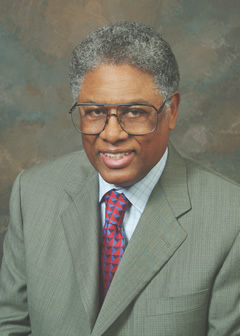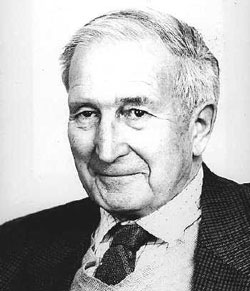Monday, January 27, 2014
Why Study Evolution with Conor Cunningham
The heresy is that we can not keep the natural and the divine together, Cunningham says. He also says that evolution doesn't just mean we are related to apes, but apes are related to us; and that latter thought adds another dimension--contra Darwin's Descent of Man (1871)--the ascent of the animal. He doesn't get to that idea until about 7:30-8:30.
P.S. I never heard a guy, or at least a professor, talk about Mary's vagina before, but Cunningham does here. And I'm not being a prude. I was just surprised by the description.
Monday, January 13, 2014
How to become really knowledgeable in a field
- Get a Goodreads account.
- Read an introductory level book.
- Read the "recommended reading" lists or "further reading" notes that are at the end of many introductory level books.
- Put all those books in your Goodreads account's "to read" list.
- Read those books.
- Add the books in those books' "recommended reading" or "further reading" lists to your Goodreads account's "to read" list.
- Read those books.
- Repeat steps 5-7 until you have become really knowledgeable in a field or at least expanded your basic knowledge of that field.
- Tip: I also "follow the footnotes" and put the books in the bibliography or footnotes at the bottom of the pages to my "to read" list on my Goodreads account.
Saturday, January 11, 2014
On the apologetic abilities of ex-believers
“Bart Ehrman’s career is testament to the fact that no one can slice and dice a belief system more surgically than someone who grew up inside it.” —Salon.com via New Testament scholar Bart Ehrman's old website.
There is a lot of truth to this maxim; but its applicability, as it suggests, extends far beyond just ex-Christians like Ehrman. It even extends beyond religion.
Thomas Sowell, for example, was a marxist that didn't come around to free-markets until he saw his god, his economic religious system, his beliefs he was immersed in, fail. This happened while he was interning for the U.S. federal government in the Department of Labor (I think).
He now is, as he has been for decades, dismantling the left-wing worldview in his weekly columns and books.
American humorist P.J. O' Rourke was also a man of the left, until he got a job, he's quipped a few times.
Christopher Hitchens, whom I will mention again below, was once a committed Trotskyist and socialist in the 1970s and 80s and later came to embrace, well, something.
It's not clear that he is writing approvingly, but in the foreword to Choice: The Best of Reason, Hitchens writes:
Ex-Christians turned atheists, Ex-atheists turned Christians
There are also many ex-atheists who spend much of their life dedicated to sharing the gospel of Jesus and God's coming kingdom to unbelievers. C.S. Lewis, whom I've never actually read yet, except for that liar, lunatic, or Lord line,* comes to mind (I don't think that's too much of a simplification of my past).
Lewis, went on to write many books defending Christianity, such as Mere Christianity, and creatively shared the Christian worldview in his works of fiction, the most notable probably being the Chronicles of Narnia series. (I hear the space trilogy series is pretty good too.)
Some less prominent examples such as David Wood and former Ex-Atheist.com proprietor A.S.A. Jones; others include Peter Hitchens, Alister McGrath, Francis Collins, John Harwick Montgomery, Marvin Olasky, and novelist A.N. Wilson.
Heck, even the late philosopher Antony Flew, who did not become a Christian his last years, became a deist (his words), and put out a book about how he believes in God, albeit a sort of "Aristotelean god."
Richard Dawkins and the late Christopher Hitchens and are on the opposite end of the spectrum. Dawkins admitted to losing his "last vestiges of religious faith" (if I can recall that correctly from The God Delusion Debate DVD with John Lennox) in his teenage years; Hitchens, in his adolescence (around 9).
Dawkins was actually very explicit about why he believed as a young Christian. Via Wikipedia:
In other words, he spent his career "surgically" explaining away design -- the very thing he used to believe in.
[Editor's Update January 13, 2013 7:30 PM] It's somewhat of a genetic fallacy to say that because someone is an ex-believer in some religious belief or some economic philosophy, such as those mentioned above, that their new beliefs are true. However, the fact that they did leave one faith and now believe in something else should raise some eyebrows.
*I know Lewis is not actually quoted in that link. However, I decided to link to perhaps one of the first websites that introduced that line of argument to me; The Case For Christ DVD possibly being the other source for me.
Wikipedia has the quote in it's entirety and actually much to say about it from many sides.
[1] Gillespie, Nick. "Foreword." Foreword. Choice: The Best of Reason. Dallas: BenBella, 2004. 4.
There is a lot of truth to this maxim; but its applicability, as it suggests, extends far beyond just ex-Christians like Ehrman. It even extends beyond religion.
Thomas Sowell, for example, was a marxist that didn't come around to free-markets until he saw his god, his economic religious system, his beliefs he was immersed in, fail. This happened while he was interning for the U.S. federal government in the Department of Labor (I think).
He now is, as he has been for decades, dismantling the left-wing worldview in his weekly columns and books.
American humorist P.J. O' Rourke was also a man of the left, until he got a job, he's quipped a few times.
Christopher Hitchens, whom I will mention again below, was once a committed Trotskyist and socialist in the 1970s and 80s and later came to embrace, well, something.
It's not clear that he is writing approvingly, but in the foreword to Choice: The Best of Reason, Hitchens writes:
But the subsequent industrial and technological revolutions have displaced a good deal of power and initiative away from states and corporations--and the unspoken alliance between them--and toward the individual worker and producer. More than this, they have greatly attenuated the frontiers of states and nations and made it easier to be an everyday "internationalist" than many once-leftist parties would have believed possible. [1]At the very bottom, this is a major admission of the success of capitalism from a former socialist.
Ex-Christians turned atheists, Ex-atheists turned Christians
There are also many ex-atheists who spend much of their life dedicated to sharing the gospel of Jesus and God's coming kingdom to unbelievers. C.S. Lewis, whom I've never actually read yet, except for that liar, lunatic, or Lord line,* comes to mind (I don't think that's too much of a simplification of my past).
Lewis, went on to write many books defending Christianity, such as Mere Christianity, and creatively shared the Christian worldview in his works of fiction, the most notable probably being the Chronicles of Narnia series. (I hear the space trilogy series is pretty good too.)
Some less prominent examples such as David Wood and former Ex-Atheist.com proprietor A.S.A. Jones; others include Peter Hitchens, Alister McGrath, Francis Collins, John Harwick Montgomery, Marvin Olasky, and novelist A.N. Wilson.
Heck, even the late philosopher Antony Flew, who did not become a Christian his last years, became a deist (his words), and put out a book about how he believes in God, albeit a sort of "Aristotelean god."
Richard Dawkins and the late Christopher Hitchens and are on the opposite end of the spectrum. Dawkins admitted to losing his "last vestiges of religious faith" (if I can recall that correctly from The God Delusion Debate DVD with John Lennox) in his teenage years; Hitchens, in his adolescence (around 9).
Dawkins was actually very explicit about why he believed as a young Christian. Via Wikipedia:
"the main residual reason why I was religious was from being so impressed with the complexity of life and feeling that it had to have a designer, and I think it was when I realised that Darwinism was a far superior explanation that pulled the rug out from under the argument of design. And that left me with nothing."And then, he spends his entire life not striding against religion -- no, that came in recent years -- but in the scientific field explaining the Darwinian origins of life; fleshing out that theory, defending that theory, and re-telling the gospel of Darwin for each generation anew with such works as The Selfish Gene (1976), The Extended Phenotype (1982), The Blind Watchmaker: Why The Evidence of Evolution Reveals A Universe Without Design (1986), River Out of Eden, (1995) Climbing Mount Improbable (1996), Unweaving the Rainbow (1998), The Ancestor's Tale (2004), The Greatest Show on Earth: The Evidence for Evolution (2009), and The Magic of Reality: How We Know What's Really True (2011), never letting the gospel get stale.
In other words, he spent his career "surgically" explaining away design -- the very thing he used to believe in.
And if you were wondering why I described Dawkin's work as gospel, it's because I just saw the video below. N.T. Wright, in his own right, is a master at explaining the gospel to new generations of Christians. Pick up his "For Everyone" series to see what I mean.
*I know Lewis is not actually quoted in that link. However, I decided to link to perhaps one of the first websites that introduced that line of argument to me; The Case For Christ DVD possibly being the other source for me.
Wikipedia has the quote in it's entirety and actually much to say about it from many sides.
[1] Gillespie, Nick. "Foreword." Foreword. Choice: The Best of Reason. Dallas: BenBella, 2004. 4.
Angelo Codevilla on the "pipe dream" of spreading democracy
How, indeed, does one government transform the alien culture of a whole region on the other side of the globe? . . . Building viable new governments in foreign lands is extraordinarily difficult, and building wholly new regimes near impossible. Native regimes may change culture over generations, but the notion that foreigners who cannot even speak the language can do it in a few years is a pipe dream. Is anything sillier than the notion that American secularists can convince Muslims about what true Islam commands?" (p. viii). ~Angelo Codevilla, quoted in Mises Review editor David Gordon's review of his book No Victory, No Peace.
Thursday, January 9, 2014
Mark Hitchcock's "Panorama of End-Time Prophecy"
So I was on Amazon yesterday, as I am almost everyday, searching for a book I used to own but probably dumped in the trash back in 2008-2010. The book, published in 2007, was by Mark Hitchcock and drew connections between the end times and former Iranian president Mahmoud Ahmadinejad.
Finding the book led me to his website, which led me to his articles, which in turn led me to the comments on the articles and one commenter in particular who said he saw Hitchcock on 100huntley.
I am familiar with 100huntley.
N.T. Wright was interviewed by them many years ago.
So I watched through 1-4 and by the fourth video I found the above graphic, perhaps a screenshot of the book's contents or a reproduction from 100huntley, in the third video. He was promoting a new book.
Hitchcock is a dispensationalist -- and I am not -- so he believes in the rapture and that we are living near the end of the "church age."
Subscribe to:
Posts (Atom)
WCF Chapter One "Of Holy Scripture" Sunday School (Sept.-Oct. 2021)
Our text for Sunday School (also "The Confession of Faith and Catechisms") Biblical Theology Bites What is "Biblical Theology...

-
January 12, 2012 Update: The old link no longer works. The old link is still below but the new leak is right below the old link. Thanks to t...
-
Voddie Baucham , Pastor of Grace Family Baptist Church in Spring, Texas, explains what it means to " support Israel ": But there’s...




